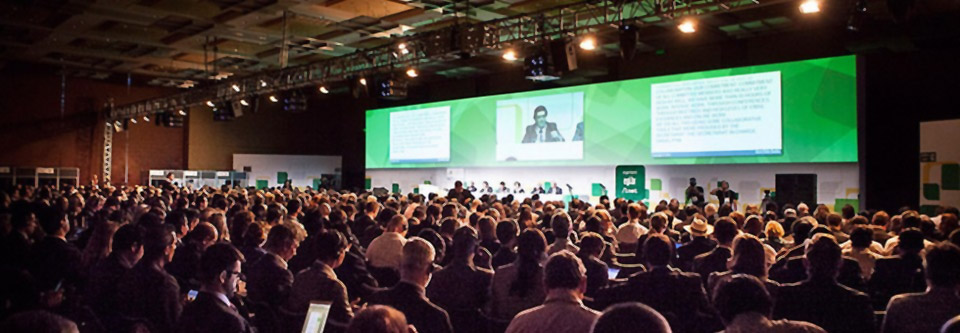Brazilian politicians and several digital rights leaders have called for a changing of the guard with who has the dominant stake in the management of the internet, hoping to make the whole thing less US-centric, at the NETmundial conference.
NETmundial is a Global Multistakeholder Meeting on the Future of Internet Governance designed to discuss where we want the internet to go over the next few years. This is the same conference that saw Brazilian president Dilma Rousseff create an “Internet Constitution,” for the country, ensuring net neutrality and online privacy in her home country. Hoping to encourage an expansion of these rights to the rest of the world, Rousseff, fellow politicians and people like world wide web inventor Tim-Berners-Lee, called for more respect of human rights online, specifically privacy and freedom of expression.
As Wired explains, Rousseff took the chance to lambaste current policies of mass spying from countries like the US as entirely unacceptable, even suggesting that such schemes went against the “very nature of the internet as a democratic, free and pluralistic platform.”
Her contemporaries agreed, with Nnenna Nwakanma, co-founder of the Free Software and Open Source Foundation for Africa suggesting that the recent revelations surrounding US spying had killed off people's trust in the internet.
Berners-Lee for his part, praised the decision to separate church from state by having the US government halt its oversight of the world's domain watchdog ICANN. This, he said, should allow the organisation to put the people that use the internet first, instead of the corporations and governments that stand to lose a bit more control by allowing online freedoms to proliferate.
KitGuru Says: What a contrast with our British politicians. In Brazil they have a president who's championing rights to privacy and personal expression and here we have a Prime Minister who wants porn filters in every home because parents apparently can't monitor their childrens' internet usage.
 KitGuru KitGuru.net – Tech News | Hardware News | Hardware Reviews | IOS | Mobile | Gaming | Graphics Cards
KitGuru KitGuru.net – Tech News | Hardware News | Hardware Reviews | IOS | Mobile | Gaming | Graphics Cards




This is just happening because Brazilian government want’s more control to censor the internet around there. It’s happening now, just one year after the biggest protests in Brazil against government corruption, which by the way, got a lot of movement and power on facebook and other networks… I am not saying that a more “globalized” internet would be bad, but Brazil`s motivations are far away from the privacy rights they claim…
@anarcho – I think that would be exceptionally difficult, perhaps impossible now, given the new ‘internet constitution’. I don’t see how it would be possible, indeed it would very likely be actually illegal as a result of this. No, I’m cynical in a different way – I think that the president and ruling party have simply realised that supporting internet freedoms is a gold mine for gaining public support, whether or not they actually agree with it. They’ll be guaranteed domestic re-election and it’s putting Brazil in the international news as champions of rights, and while it’s probably losing them diplomatic support in a strict sense they didn’t really have much clout in that area anyway.